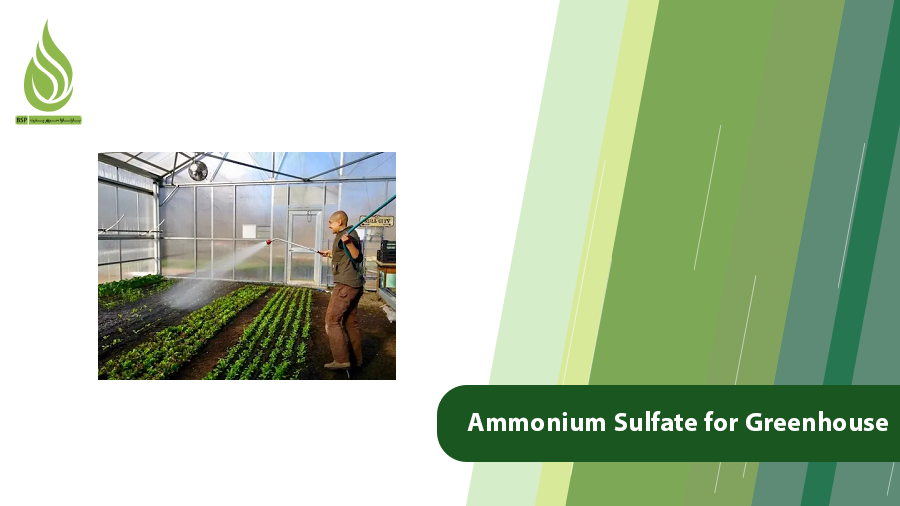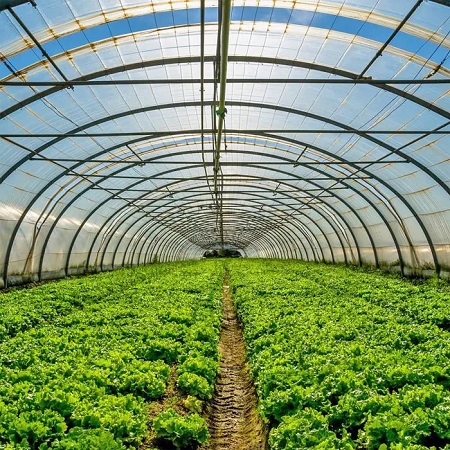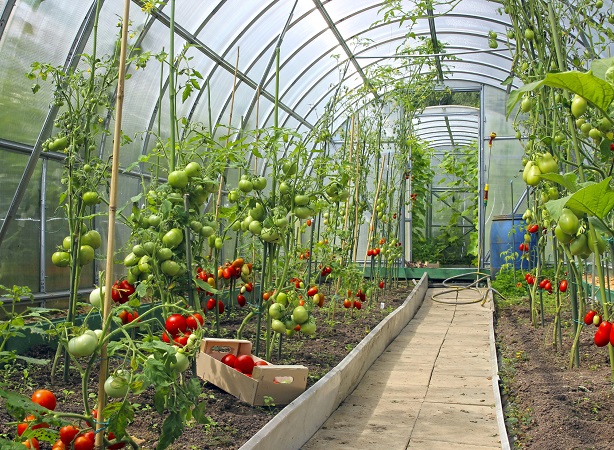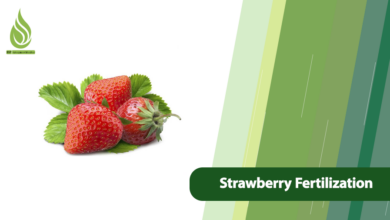
Which Form of Ammonium Sulfate is Best for Greenhouse Growers?
Effective plant nutrition management is a cornerstone of successful greenhouse cultivation, where the choice of fertilizers directly impacts crop yield, quality, and sustainability. Among the most widely used fertilizers in greenhouse settings is ammonium sulfate, valued for its rich nitrogen and sulfur content, which are essential for robust plant growth and high-quality produce. However, greenhouse growers often face a critical decision: which form of ammonium sulfate, liquid, crystalline, powdered, or granular, is best suited for their specific needs? Let’s see.
Ammonium Sulfate Usage for Greenhouse
Ammonium sulfate is a chemical fertilizer prized for its dual role as a source of nitrogen and sulfur. These nutrients are vital for greenhouse crops, which often require precise and consistent nutrient delivery to thrive in controlled environments. Nitrogen is a key driver of vegetative growth, promoting the development of leaves, stems, and chlorophyll, which enhances photosynthesis. Sulfur, meanwhile, is essential for protein synthesis, enzyme function, and overall plant health, particularly in crops like tomatoes, cucumbers, peppers, and leafy greens commonly grown in greenhouses.
The use of ammonium sulfate in greenhouses offers several specific benefits:
- Rapid Nitrogen Absorption
- Enhanced Vegetative Growth
- Improved Leaf Color and Chlorophyll Content
- Better Crop Quality
- Soil pH Regulation
- Enhanced Micronutrient Uptake

According to a 2023 study published in the Journal of Plant Nutrition, ammonium sulfate is particularly effective in greenhouse systems due to its ability to deliver nutrients efficiently in controlled irrigation setups, such as drip systems, which are prevalent in modern greenhouse operations.
Exploring the Different Forms of Ammonium Sulfate
Ammonium sulfate is available in four primary forms: liquid, powdered, crystalline, and granular, each with distinct properties that influence its suitability for greenhouse use. Below, we examine each form in detail, highlighting its advantages, disadvantages, and practical applications.
Liquid Ammonium Sulfate
Liquid ammonium sulfate is pre-dissolved, making it ready for immediate use in irrigation or foliar applications.
Advantages:
- High Solubility: The liquid form dissolves instantly in water, allowing rapid nutrient uptake by plant roots or leaves.
- Precision in Application: Growers can easily adjust dosages to meet specific crop needs, ensuring tailored nutrition.
- Compatibility with Irrigation Systems: Liquid ammonium sulfate integrates seamlessly with drip irrigation and fertigation systems, which are common in greenhouses.
- Foliar Application: It can be sprayed directly onto leaves, providing a quick nutrient boost during critical growth stages.
- Uniform Nutrient Delivery: The liquid form ensures even distribution, reducing the risk of nutrient hotspots that can harm plants.
Disadvantages:
- Higher Cost: Liquid fertilizers are generally more expensive than solid forms due to processing and packaging.
- Storage Sensitivity: Improper storage (e.g., exposure to extreme temperatures) can degrade quality, reducing effectiveness. We suggest you take a look at our guide to storing fertilizers.
- Risk of Overapplication: Excessive use can lead to leaf or root burn, requiring careful monitoring and calibration.
Best Use Case: Liquid ammonium sulfate is ideal for greenhouses with advanced irrigation systems or those requiring rapid nutrient delivery, such as during peak growth periods or when correcting nutrient deficiencies.
Powdered Ammonium Sulfate
Powdered ammonium sulfate consists of fine, uniform particles, resembling a flour-like texture.
Advantages:
- Cost-Effective: It is typically less expensive than liquid or crystalline forms, making it attractive for budget-conscious growers.
- High Solubility: Like the liquid form, it dissolves quickly in water, facilitating fast nutrient absorption.
- Versatile Application: Suitable for both soil application and dissolution in fertigation systems.
Disadvantages:
- Moisture Sensitivity: Powdered ammonium sulfate readily absorbs moisture, leading to clumping during storage or transport, which can complicate handling.
- Clogging Risk: Fine particles may clog irrigation nozzles if not properly filtered, posing challenges in drip systems.
- Uneven Distribution: Due to its lightweight nature, achieving uniform application in soil can be difficult, potentially causing localized over-fertilization and plant damage.
Best Use Case: Powdered ammonium sulfate is a good choice for small-scale greenhouses or those with limited budgets, provided proper storage and application techniques are followed to avoid clumping and uneven distribution.
Crystalline Ammonium Sulfate
Crystalline ammonium sulfate features larger, transparent crystals with higher purity than the powdered form, offering excellent solubility and clarity in water.
Advantages:
- High Purity: Free of impurities, making it ideal for greenhouses prioritizing water and fertilizer quality.
- Rapid Dissolution: Dissolves quickly and completely in water, ensuring clear solutions for irrigation systems.
- Ease of Storage: Less prone to moisture absorption than powdered forms, simplifying storage and transport.
- Uniform Application: The crystalline structure allows for even distribution in soil or water, reducing the risk of nutrient imbalances.
- Suitability for Precision Systems: Its clarity and purity make it a preferred choice for advanced greenhouse setups with sensitive irrigation systems.
Disadvantages:
- Higher Cost: More expensive than powdered forms due to its refined production process.
- Requires Careful Application: Overuse or improper dilution can lead to nutrient waste, necessitating precise management.
Best Use Case: Crystalline ammonium sulfate is the go-to option for large-scale, high-tech greenhouses, particularly those focused on export-quality crops, where purity and consistent nutrient delivery are paramount.

Note: Research from the International Journal of Agricultural Sciences (2024) highlights that crystalline ammonium sulfate is increasingly favored in precision agriculture due to its minimal risk of clogging irrigation systems and its ability to maintain water quality in fertigation setups.
Granular Ammonium Sulfate
Granular ammonium sulfate consists of small, uniform granules designed for slow-release nutrient delivery, commonly used in open-field agriculture.
Advantages:
- Low Clumping Risk: Granules are less likely to clump than powdered forms, simplifying storage and handling.
- Ease of Application: Uniform granules are easy to spread, ensuring even distribution in soil.
- Slow-Release Properties: Gradual nutrient release supports long-term soil fertility, reducing the need for frequent applications.
- Durable Storage: Granules are less sensitive to moisture, making them easier to store in varying conditions.
Disadvantages:
- Lower Solubility: Granules dissolve more slowly, delaying nutrient availability compared to liquid or crystalline forms.
- Higher Cost than Powdered Forms: Granular fertilizers are more expensive due to processing requirements.
- Incompatibility with Drip Systems: Slow dissolution makes them unsuitable for most greenhouse irrigation setups.
- Risk of Nutrient Loss: In greenhouses, granular forms may release volatile compounds into the air, reducing efficiency unless followed by immediate irrigation.
Best Use Case: Granular ammonium sulfate is less common in greenhouses but can be used as a supplementary slow-release fertilizer in soil-based systems or for crops with longer growth cycles.
Which Form of Ammonium Sulfate is Best for Greenhouse Use?
Selecting the optimal form of ammonium sulfate depends on the greenhouse’s size, irrigation system, crop type, and budget. Here’s a detailed comparison to guide your decision:
- Liquid Ammonium Sulfate: Most greenhouse growers prefer the liquid form for its rapid absorption and compatibility with drip irrigation and foliar spraying. It’s particularly effective for delivering nitrogen quickly during critical growth stages, such as vegetative development or fruit setting. Its ease of use in fertigation systems makes it a staple in modern greenhouses, though its higher cost may be a consideration for smaller operations.
- Crystalline Ammonium Sulfate: For large-scale or export-oriented greenhouses, crystalline ammonium sulfate is often the top choice due to its high purity, rapid dissolution, and compatibility with precision irrigation systems. Its clarity ensures no residue or clogging, which is critical for maintaining equipment longevity. According to a 2023 report by the Greenhouse Grower Magazine, crystalline forms are increasingly adopted in high-tech greenhouses for their reliability in delivering consistent nutrient levels.
- Powdered Ammonium Sulfate: Smaller greenhouses or those with limited budgets may opt for powdered ammonium sulfate due to its affordability and versatility. However, growers must take precautions to prevent clumping and ensure proper dissolution to avoid irrigation issues.
- Granular Ammonium Sulfate: While less common in greenhouses, granular forms can be used as a supplementary slow-release fertilizer in soil-based systems. To minimize nutrient loss through volatilization, immediate irrigation is recommended after application.
Cost Considerations: In large greenhouses, where cost efficiency is critical, crystalline ammonium sulfate strikes a balance between effectiveness and affordability. Foliar spraying or fertigation with crystalline forms is often the most practical approach, especially for high-value crops. For smaller operations, powdered or liquid forms may be more feasible, depending on the irrigation setup and labor availability.

Note: Liquid and crystalline forms are better suited for greenhouses due to their compatibility with automated irrigation systems, which dominate modern greenhouse operations.
Sourcing High-Quality Crystalline Ammonium Sulfate
For greenhouse growers seeking premium crystalline ammonium sulfate, Barno Crystalline Ammonium Sulfate is a trusted option. Produced by Barsava Sepehr Part Company, Barno is a leading manufacturer in Iran, supplying high-purity fertilizers for both domestic and international markets. For bulk purchases, direct orders from the manufacturer offer the best value. Visit their website for online support or contact them via phone for ordering details. For smaller quantities, Barno crystalline ammonium sulfate is available in 50 kg bags at reputable agricultural supply stores.

Practical Recommendations for Greenhouse Growers
To maximize the benefits of ammonium sulfate, consider the following best practices:
- Conduct Soil and Water Tests: Before applying ammonium sulfate, test soil and irrigation water to assess nitrogen and sulfur levels, pH, and salinity. This ensures precise fertilization tailored to crop needs.
- Monitor Soil pH: Maintain soil pH between 5.5 and 6.5 for optimal nutrient uptake. Use soil amendments if necessary to correct alkalinity.
- Calibrate Dosage and Timing: It’s one of the most important things in fertilizing greenhouse plants. Adjust fertilizer application based on crop type, growth stage, and environmental conditions. For example, ammonium sulfate is most effective during vegetative growth and should be reduced after flowering to avoid excessive vegetative development at the expense of fruit or flower production.
- Use Precision Application Methods: For liquid and crystalline forms, leverage drip irrigation or foliar spraying to ensure uniform nutrient delivery. Avoid overapplication to prevent root or leaf burn.
- Choose High-Quality Products: Purchase ammonium sulfate from reputable suppliers to ensure purity and effectiveness. For crystalline forms, brands like Barno Crystalline Ammonium Sulfate are recommended for their consistent quality.
- Proper Storage: Store fertilizers in a cool, dry environment to maintain their efficacy. This is particularly important for powdered forms, which are prone to moisture absorption.
- Integrate with Nutrient Management Plans: Combine ammonium sulfate with other fertilizers to create a balanced nutrient program, addressing both macro and micronutrient needs.
